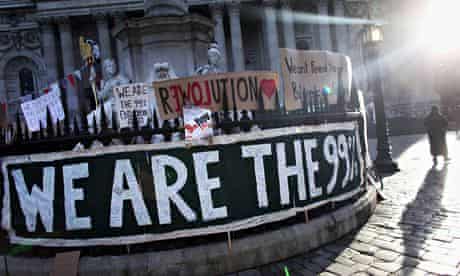City Of God (Malayalam, 2011)
Director: Lilo Jose Pullissery
 |
| Oh, dear, oh, dear! |
Are the hyenas' scream decibels too loud for comfort? Mourners want a time of peace to reflect, not hear noises that evoke madness.
 |
| Minesweeper |
 |
| Buridan's Ass |
 |
| Seeing with complex eyes? |
 We started in the pre-Industrial Revolution with a significant disparity between the haves and have nots. Under the feudal system, there were the extremely wealthy landowners and the dirt poor peasants. The inequality between the two was phenomenal. The poor simply cannot work their way to become rich. It is humanly impossible. One has to be born with a silver spoon to own capital. Alternatively, one has to be married into one, like in the many fairytales and novels of the yesteryears. 1% of the world population owned 70% of the world's wealth.
We started in the pre-Industrial Revolution with a significant disparity between the haves and have nots. Under the feudal system, there were the extremely wealthy landowners and the dirt poor peasants. The inequality between the two was phenomenal. The poor simply cannot work their way to become rich. It is humanly impossible. One has to be born with a silver spoon to own capital. Alternatively, one has to be married into one, like in the many fairytales and novels of the yesteryears. 1% of the world population owned 70% of the world's wealth. |
| Anti-capitalist protesters - St Paul's Cathedral, London, 2011. Photograph: Oli Scarff/Getty Images Europe |
Nail Polish (Hindi; 2021)
A riveting, thought-provoking court drama worth the time spent.
 |
| Roman Charity: Pero secretly breastfeeds her father, Cimon who is sentenced to death by starvation Peter Paul Rubens |
Not everyone in the USA, especially the Californians, took in kindly to Steinbeck's book. The idea of Americans treating their own kind with so much scorn and cruelty was too repulsive. The idea of our cooperative type of setup like the one in a communist/socialist nation instead of American democracy in solving the poors' misery was offensive. To top it all, the book presents a character who performs an act of Roman Charity. She nurses a sick and starving man.
Infidel (2020)
Written, Directed by Cyrus Nowrasteh.
Even though their new hosts have offered a hand of friendship and accepted them to share their prosperity, the newcomers still hold their allegiance to the former countries, the countries that they destroyed and the nation that become too toxic for them to inhabit. The problem is that the newcomers all have a common bond that unites them to ruin their newfound land, religion's brotherhood.
The problem is that there is an image problem. A peaceful religion must be seen to be as one. More public relation works are wanting in making this a reality.
This problem of allegiance has been recurring all through the 20th century. There is discordance on whether to bow to the umbrella of nationhood or kneel to the universal camaraderie of religion. It happened during the khilafat movement and is happening now. There is a propensity to play victimhood and collude with the aggressor against the majority, citing the majority's conspiracy.
This film tells the story (based on a true story, it seems) of a Christian preacher-blogger with a CIA wife who is a guest of Egypt. He is to attend faith dialogues to bridge the divide between Christians and Muslims in that conservative country. In a TV interview, he goes overboard with his discussion. His speech was construed as proselytising the Muslims and kidnapped by Hizbullah terrorists backed by the Iranian Government. The main reason for his abduction was that back home in the USA, the preacher is accused by his American-Iranian business-partner to have squealed to the CIA about subversive anti-national pursuits.An average movie that can be given a miss. 3/5.